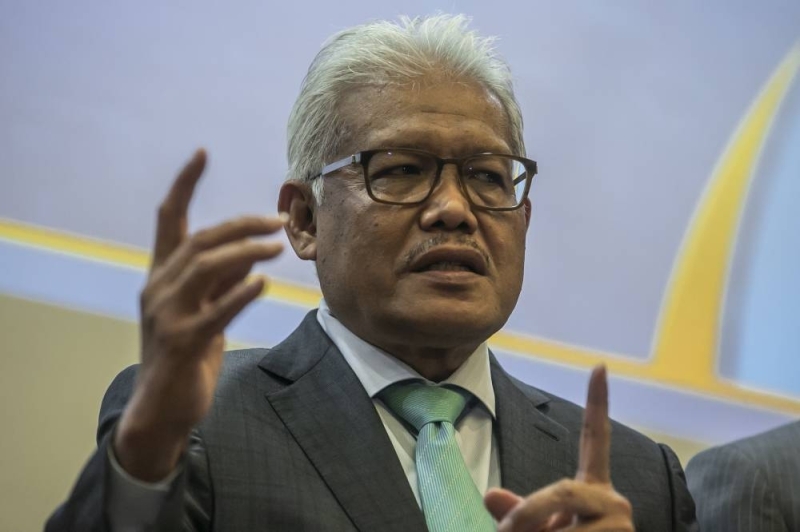The new premium visa plan raises as at least as many questions as it answers, one of which is how it’s materially different from the existing MM2H programme, which it does not replace.
In a bit of a surprise, Malaysia’s government has announced a new premium visa programme to draw rich investors to settle in the country, similar to Golden Visa initiatives in Singapore, UAE, Thailand, Portugal, and others. (To see a list of countries with such programmes, along with their requirements, CLICK HERE.)
Home Minister Hamzah Zainudin said the Premium Visa Programme (PVIP) will be open to affluent individuals from all countries, except those that have no diplomatic ties with Malaysia, such as Israel.
The new programme will be in effect from October 1, 2022.
The number of applicants will be capped at 1% of the Malaysian population (which currently stands at about 32.8 million). This limit includes the number of participants under the Malaysia My Second Home (MM2H) programme. Despite this part of the plan being rolled up with MM2H, Hamzah noted that the PVIP does not replace the MM2H programme, which is primarily aimed at retired foreigners seeking to settle in Malaysia.
“The Cabinet meeting on August 17, 2022 agreed to the proposed creation of a new programme with the concept of Residency Through Investment called the Malaysia Premium Visa Programme (PVIP) to drive economic growth, generate national income, and open up more job opportunities for locals,” he said when announcing the programme’s launch.
The requirements for the PVIP are similar to those for the new MM2H programme, most notably the income and deposit requirements of RM40,000 per month and RM1 million, respectively.
Not only must PVIP applicants place at least RM1 million in their local bank account, they are only ever allowed to withdraw no more than 50% of that amount, and then only after the first year, and then again, only for the purchase of property or to pay for medical or educational expenses. Presumably the same minimum property purchase prices for foreigners would apply to those in the PVIP programme.
It’s hard to understand how this is being billed as an ‘investor’ visa if the so-called investors are not allowed to freely spend their own money here – except when and for what the government dictates. Additionally, unlike virtually all other Golden Visa investment programmes, Malaysia’s PVIP doesn’t appear to require any actual investment. Most other programmes require starting a business, making an investment in an approved industry, real estate, government funds, or making other tangible (often prescribed and targeted) investments.
Perhaps Malaysia’s ‘investment’ simply refers to the participation fee required by the visa and paid upfront to the government, which is an eye-popping RM200,000 per applicant, and an additional RM100,000 per dependent.
Successful applicants are allowed to bring their spouses, children, parents, in-laws, and domestic workers as dependents subject to existing immigration laws, though one can see a number of potential issues arising from this. One possible problem is with the kids, because according to Hamzah, children of participants are not considered dependents once they reach 21 years of age, and must apply to be a PVIP participant on their own accord to remain in the country.
Also like the MM2H programme, Hamzah said all PVIP applicants and dependents will need to submit a Letter of Good Conduct from the authorities of the country in which they are currently residing.
One noteworthy difference is the length of the visa for PVIP participants. This pass is valid for 20 years, with renewals granted once every five years (as no single visa in Malaysia can legally be issued for longer than five years). This five-year process includes having a valid passport, updating personal information, undergoing screening by the police, and having medical checks in Malaysia.
Like the MM2H programme, participants are not eligible for Malaysian citizenship, nor any special rights of residency, at least none that were named. That, to us, means that the visa could presumably be withdrawn or simply not honoured at any time, as was the case during the pandemic when hundreds of MM2Hers, many of whom had their only homes in Malaysia, were flatly refused entry into the country for many months.
This absolutely begs the question of why anyone would choose this visa over the existing MM2H visa, as they have the same income and deposit requirements, but the PVIP requires an additional one-time upfront cash payment of at least RM200,000 – and likely quite a bit more, given the additional cost for each dependent.
Is it possible that the MM2H programme will again be changed, so as to materially differentiate it from the new PVIP programme?
Stay tuned – we anticipate more details to emerge in the coming days and weeks, and will update this story accordingly.
"ExpatGo welcomes and encourages comments, input, and divergent opinions. However, we kindly request that you use suitable language in your comments, and refrain from any sort of personal attack, hate speech, or disparaging rhetoric. Comments not in line with this are subject to removal from the site. "























